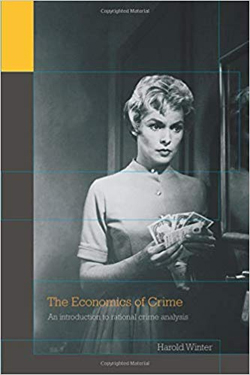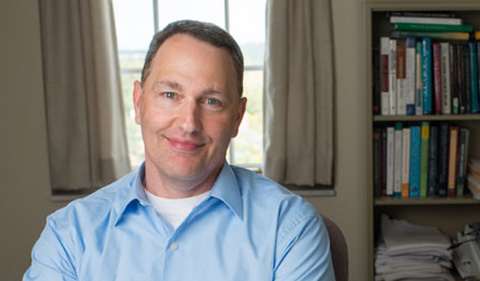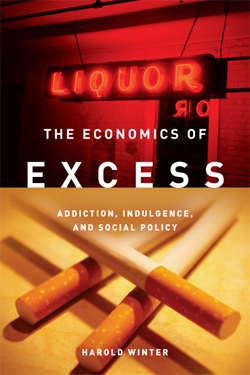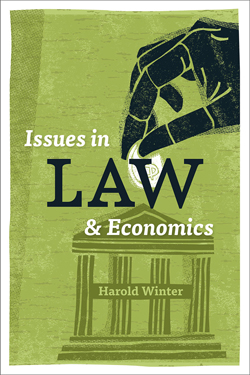Trouble making sense of the debates about health care and crime?
Even students who have never taken an Economics class can ponder these questions this fall with a prof who (literally) wrote the book about them.
Dr. Harold Winter teaches ECON 2130 – Current Economic Problems, offered Monday, Wednesday and Friday from 10:45 to 11:40 a.m.
- The Rational Criminal
- Policing and Apprehension
- The Courts and Conviction
- Fines vs. Prison
- Shaming Punishments
- Capital Punishment
- Racial and Gender Bias
- Gun Control
- The War on Drugs
- Private vs. Social Health Insurance
- Prevention vs. Treatment of Illness
- Physician Behavior and Patient Care
- Infectious Diseases
- The Rational Addict
- Behavioral Models of Addiction
- Smoking and Alcohol Control Policies
- The Obesity Epidemic
- Health Policy and Paternalism
 This class will be lecture-intensive. Class size will be kept small enough (25 students maximum) to encourage student discussion. There will be no required textbook, but numerous short readings (and website links) will be provided.
This class will be lecture-intensive. Class size will be kept small enough (25 students maximum) to encourage student discussion. There will be no required textbook, but numerous short readings (and website links) will be provided.
Grading will be based on two types of written assignments. At-home assignments will allow students to present their own perspectives on whatever issues are at hand. These assignments will make up a small class participation portion of the course grade. The bulk of the course grade will be made up of in-class written assignments. These assignments will require students to apply economic reasoning to whatever issues are at hand.
Economics 2130 is an entry-level economics course, the focus of which is on applying economic reasoning to a variety of social policy issues. The course is primarily designed for students not planning on majoring in economics, but who may hold a particular interest in public policy analysis regardless of their college affiliation or major field of study.
Economics is about how people make choices to allocate their available resources. This approach will be applied to two major social policy topics. The first half of the course will deal with issues in the economics of crime and punishment. The second half of the course will deal with issues in the economics of health care.
ECON 2130 has no pre-requisites, and no previous exposure to economic analysis is necessary. Other than an occasional numerical example for ease of exposition, the lecture material will be presented in an entirely non-technical manner.
The course is specifically designed for students not majoring in economics, but any student, regardless of major, who has not yet taken an upper-level economics course (3000 or higher) is eligible.
ECON 2130 satisfies the College of Arts & Sciences requirement for 2000-level courses and above.






















Comments